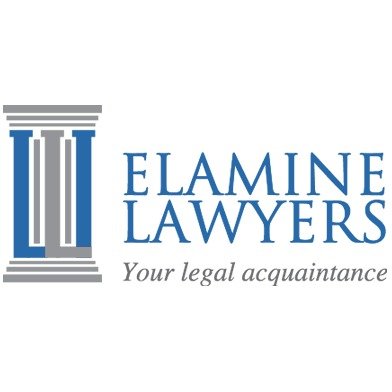Best Oil, Gas & Energy Lawyers in Frankston
Share your needs with us, get contacted by law firms.
Free. Takes 2 min.
List of the best lawyers in Frankston, Australia
About Oil, Gas & Energy Law in Frankston, Australia
The Australian Oil, Gas & Energy sector is highly regulated to ensure the proper use and conservation of natural resources, as well as environmental protection. These regulations apply across the country, including in Frankston, Victoria. They cover a wide range of issues, from the extraction and sale of these resources to safety protocols and environmental impact assessments.
Energy law in Australia is contained in both state and federal legislation, under a complex framework that includes local, state, and national laws and regulations, various authorities, and administrative bodies.
Why You May Need a Lawyer
Understanding the complex legal framework surrounding the Oil, Gas & Energy sectors in Australia can be challenging. Individuals or companies might often need legal help in situations such as negotiating contracts for oil and gas exploration or production, ensuring regulatory compliance in energy projects, dealing with environmental litigation, or resolving disputes involving mineral rights.
Local Laws Overview
In Victoria, key regulations governing the Oil, Gas & Energy industry include the Petroleum Act 1998, the Geothermal Energy Resources Act 2005, the Greenhouse Gas Geological Sequestration Act 2008 and the Resources Legislation Amendment Act 2017.
These laws cover major aspects such as licensing for exploration and production, safety standards, environmental management, and resource rent tax. Failure to comply can lead to hefty penalties or legal action.
Frequently Asked Questions
1. How can I secure a license for oil and gas exploration in Frankston?
Obtaining a license involves making an application to the Department of Jobs, Precincts and Regions. Before issuing a license, the department thoroughly assesses the potential environmental impact and safety measures proposed.
2. What are my obligations once I secure a license?
License holders are required to comply with a range of obligations, including insurance, royalties payments, regular reporting, and compliance with environmental and safety laws amongst other things.
3. How does the Australia energy law handle disputes?
Disputes related to the Oil, Gas & Energy sector are typically handled by the relevant administrative bodies and tribunals or courts. Mediation or arbitration can also be used depending on contract terms.
4. Do I need to consult with local communities before starting a project?
Community consultation is often mandated by law before a project can proceed, particularly if it has the potential to significantly impact the local environment or community.
5. Can the government revoke my license or permit without reason?
The government typically can't revoke a license without reason. It must follow due procedure, and revocations usually occur due to non-compliance with legislation or specific license conditions.
Additional Resources
You can reach out to the Department of Jobs, Precincts and Regions for information about licensing and compliance. Victoria's Earth Resources Regulation can also provide valuable information. Other helpful organizations may include the Australian Energy Regulator (AER) and the Energy and Water Ombudsman Victoria (EWOV).
Next Steps
If you need legal assistance related to Oil, Gas & Energy in Frankston, it's advisable to find a law firm that specializes in this area. They can help you navigate the complex laws and regulations, ensure compliance, protect your interests, and represent you during any disputes or legal proceedings.
Lawzana helps you find the best lawyers and law firms in Frankston through a curated and pre-screened list of qualified legal professionals. Our platform offers rankings and detailed profiles of attorneys and law firms, allowing you to compare based on practice areas, including Oil, Gas & Energy, experience, and client feedback.
Each profile includes a description of the firm's areas of practice, client reviews, team members and partners, year of establishment, spoken languages, office locations, contact information, social media presence, and any published articles or resources. Most firms on our platform speak English and are experienced in both local and international legal matters.
Get a quote from top-rated law firms in Frankston, Australia — quickly, securely, and without unnecessary hassle.
Disclaimer:
The information provided on this page is for general informational purposes only and does not constitute legal advice. While we strive to ensure the accuracy and relevance of the content, legal information may change over time, and interpretations of the law can vary. You should always consult with a qualified legal professional for advice specific to your situation.
We disclaim all liability for actions taken or not taken based on the content of this page. If you believe any information is incorrect or outdated, please contact us, and we will review and update it where appropriate.








